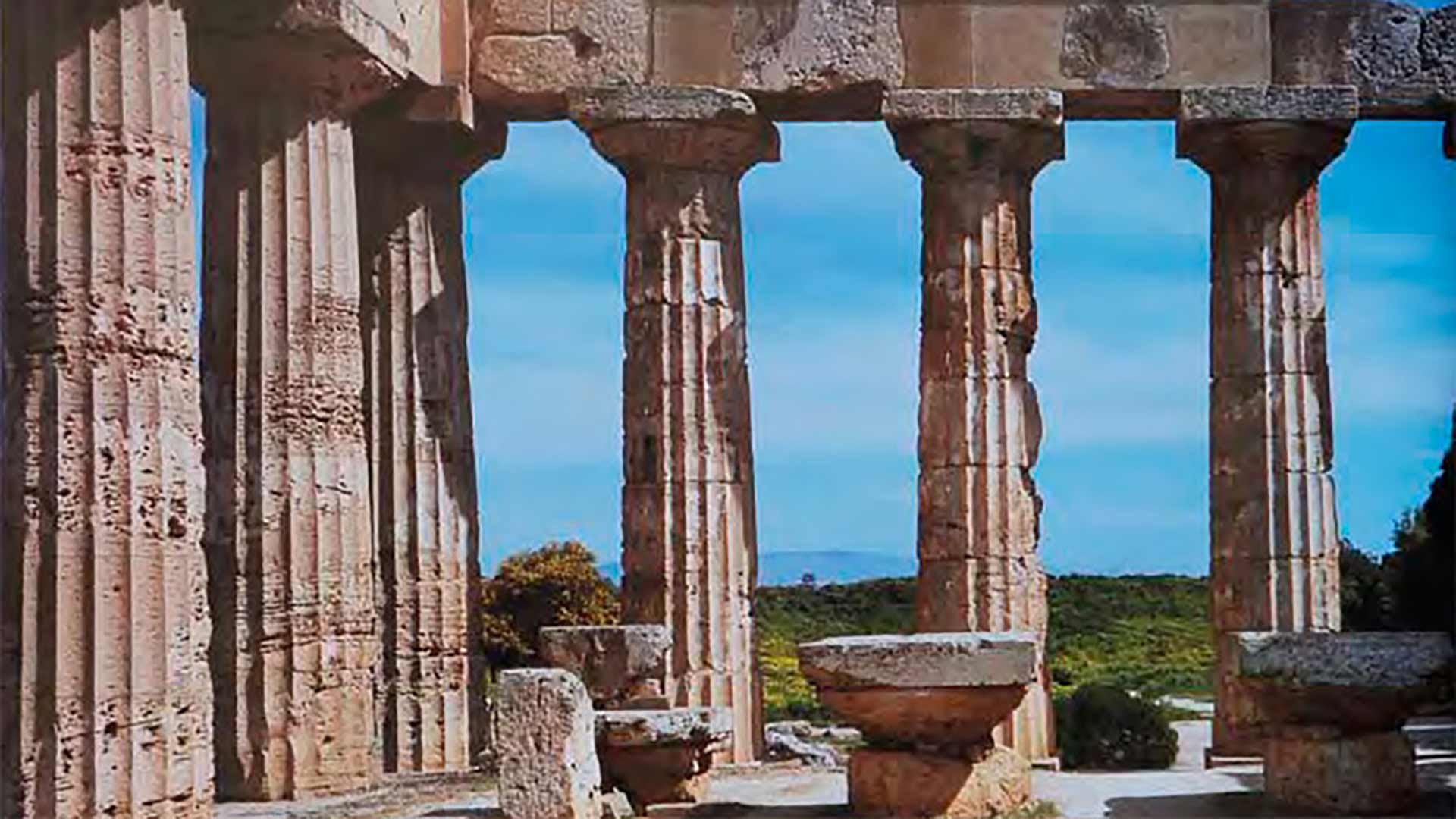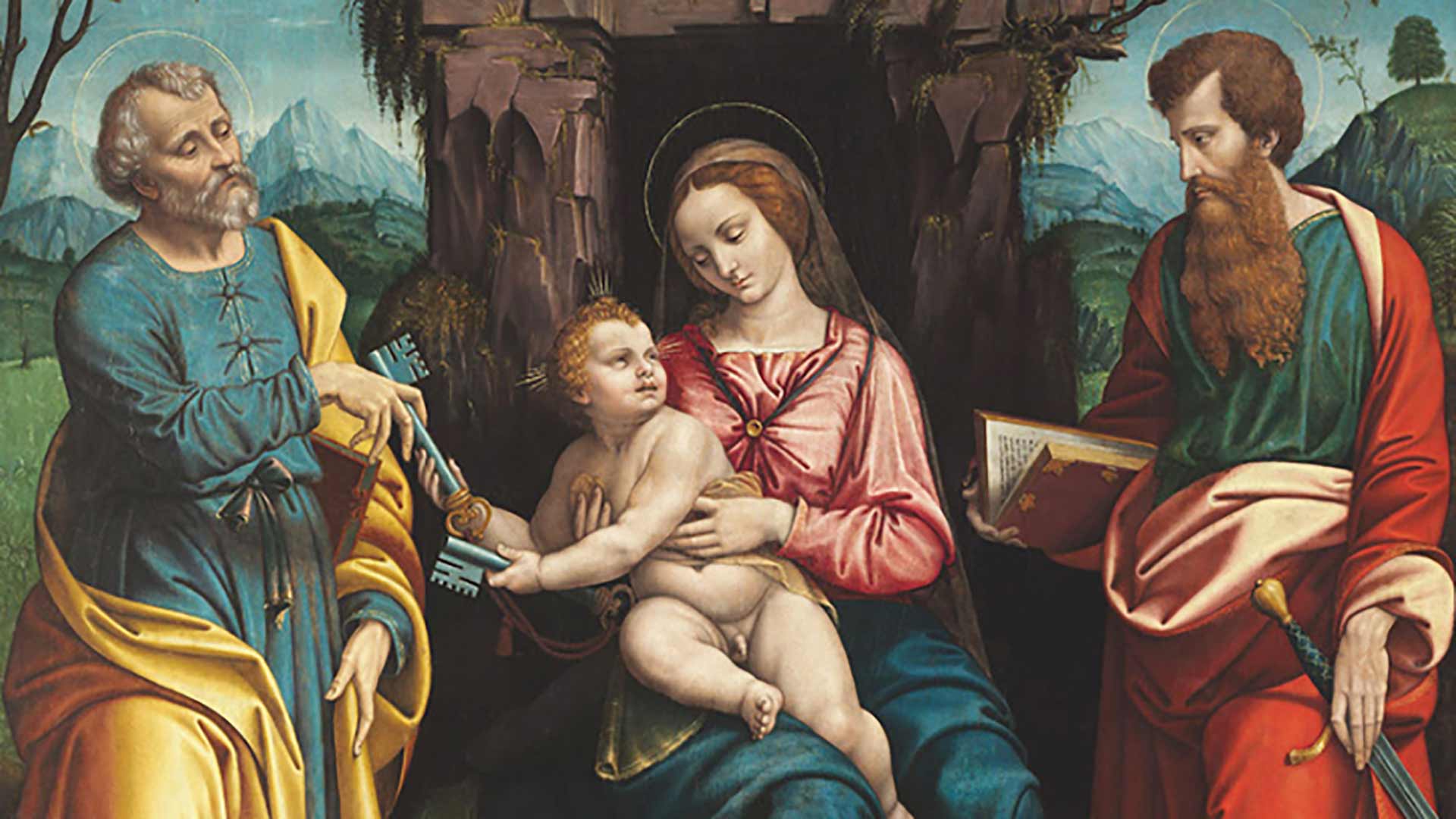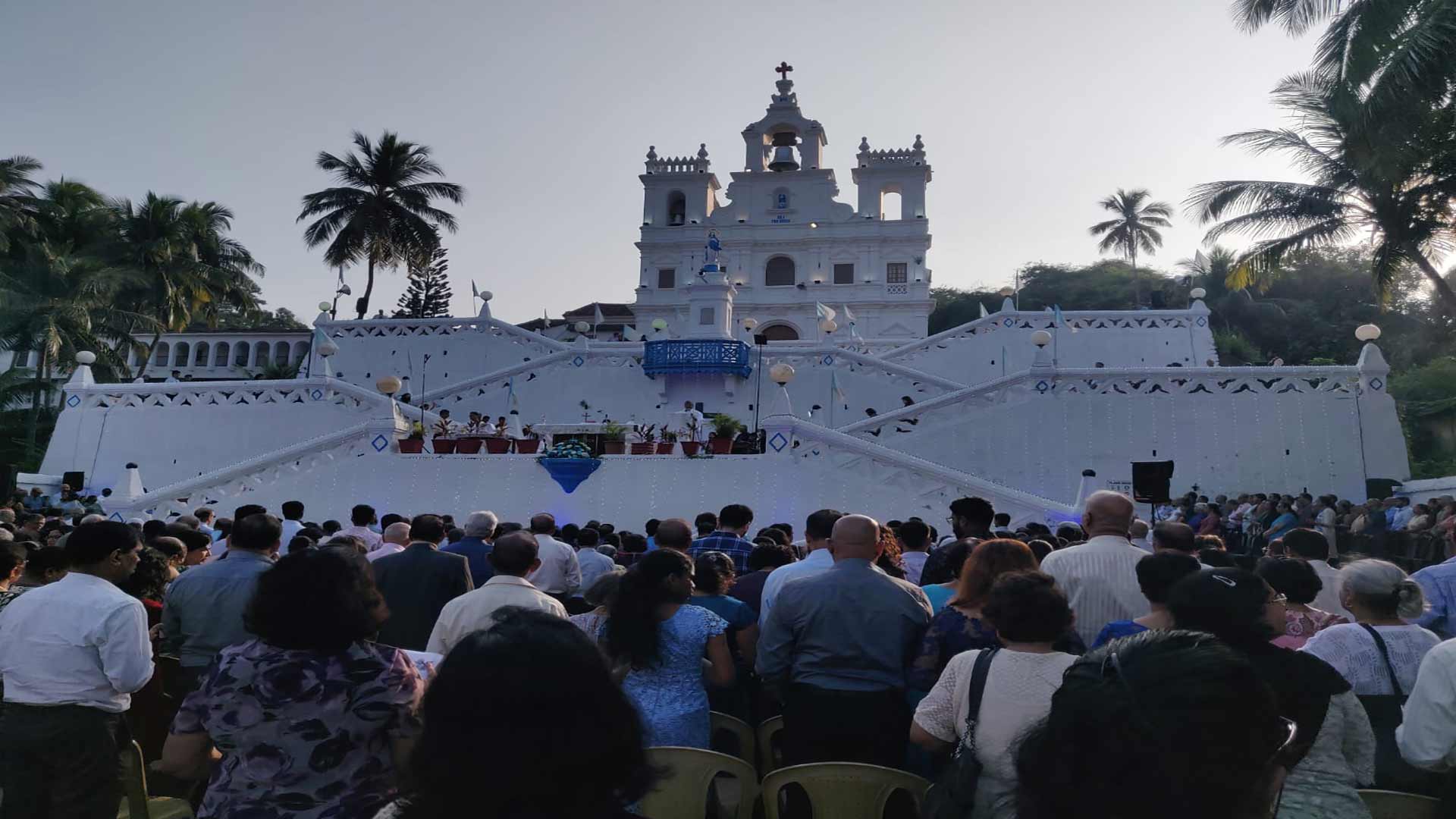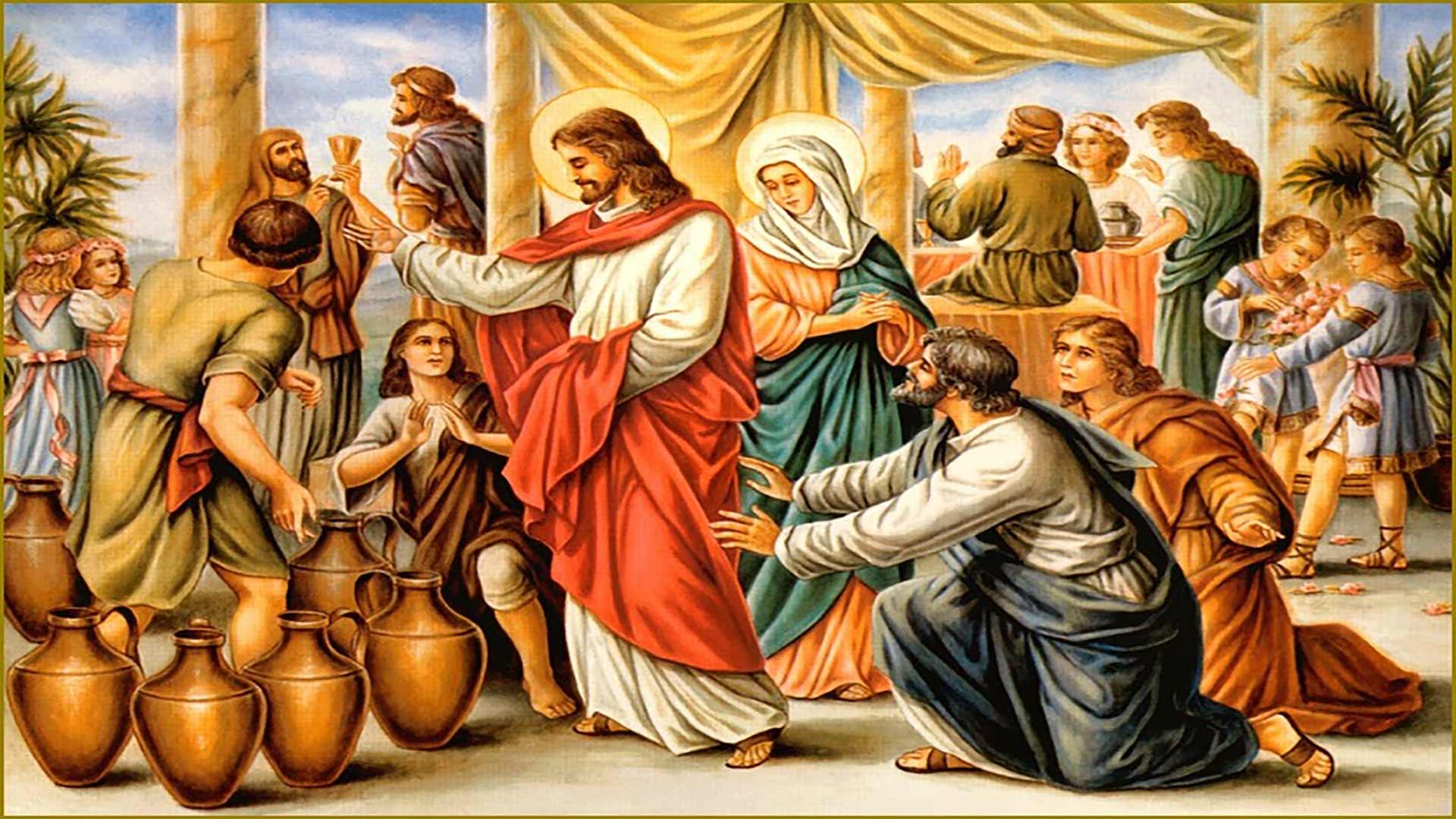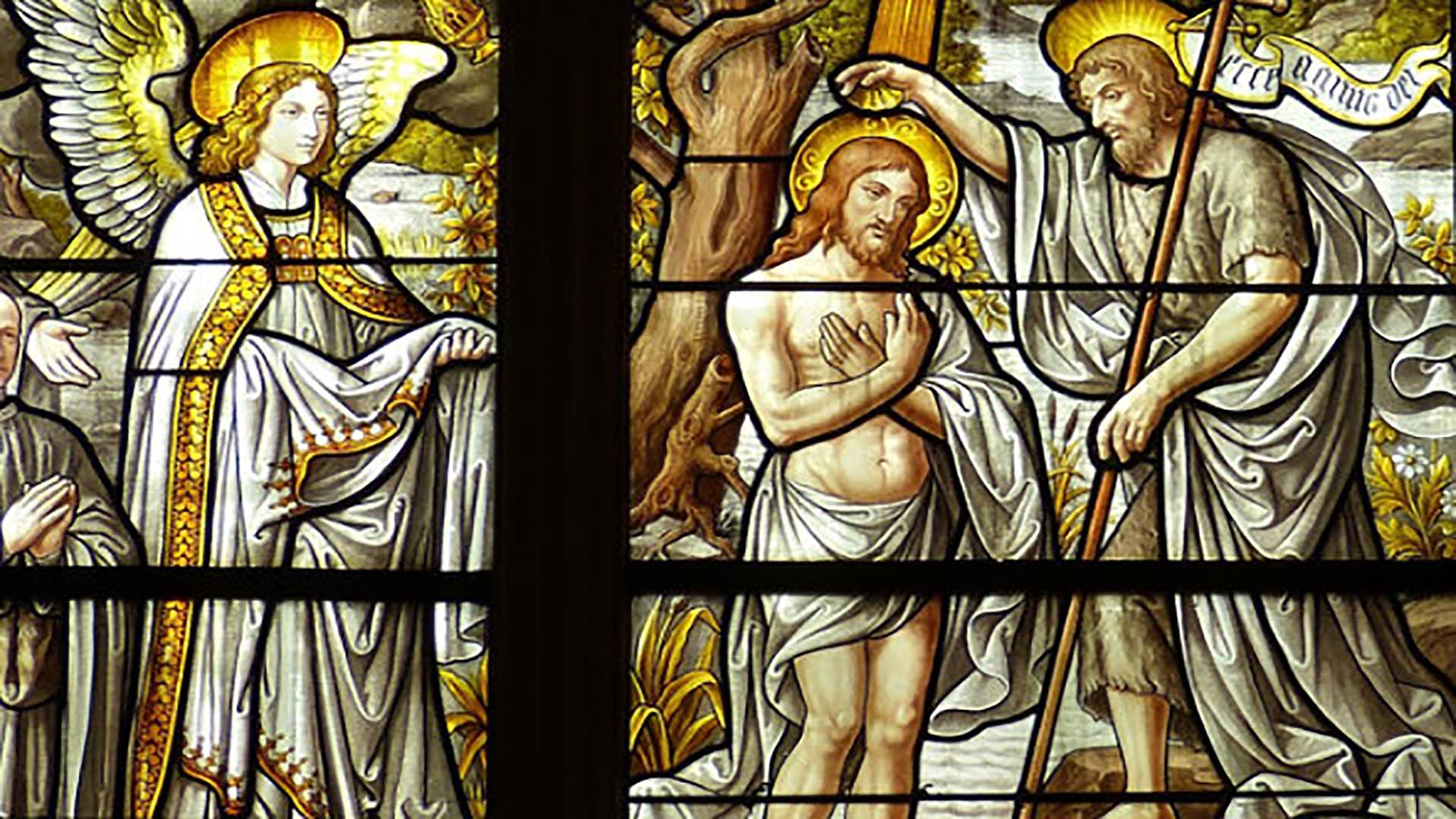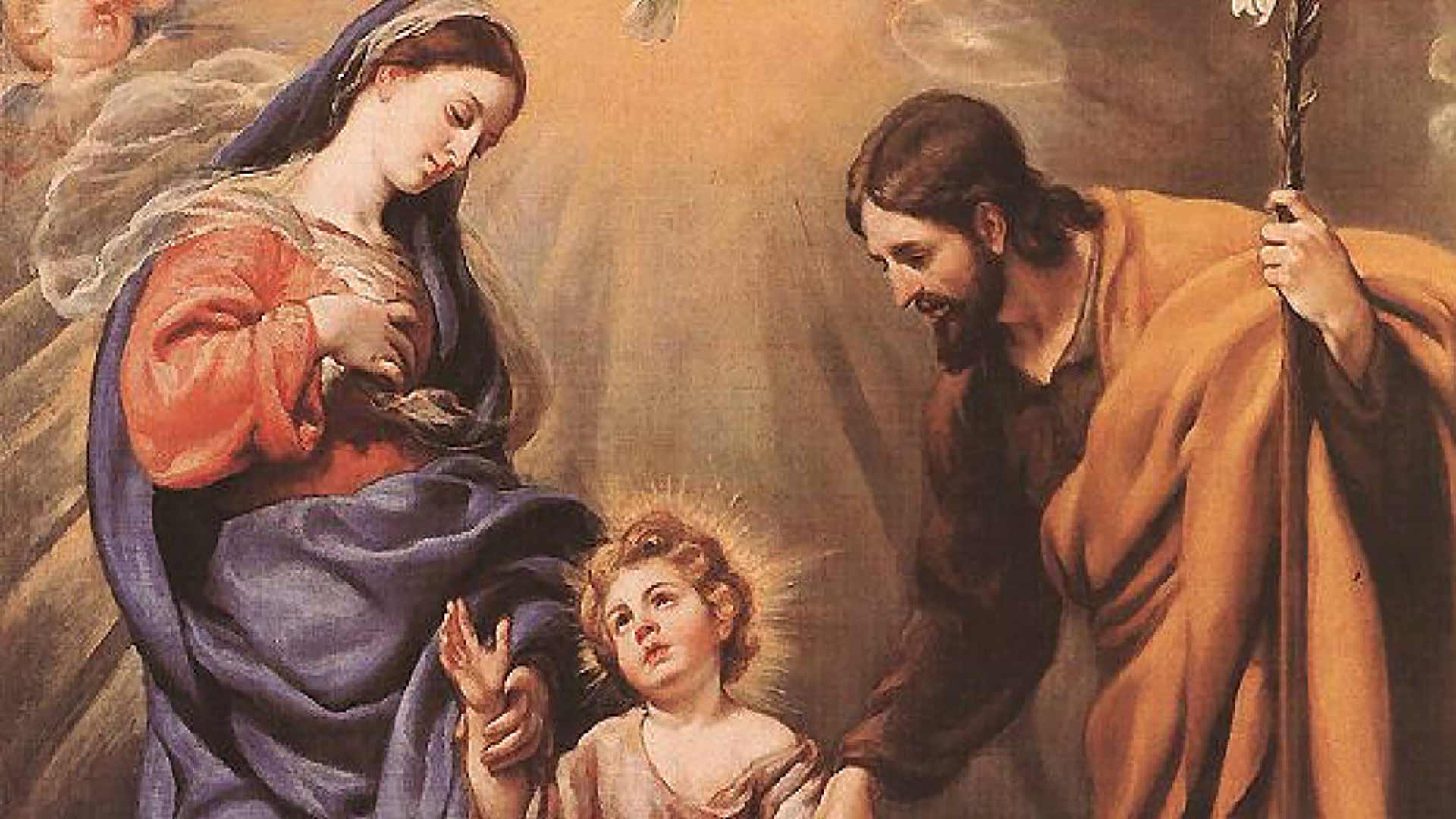Between Jerusalem and Rome
The Readings of the Fourteenth Sunday of the Year especially grab our attention. In the First, we see Isaiah’s colourful imagery involving Jerusalem (Is 66: 10-14); in the Second, we have St Paul’s passionate testimony (Gal 6: 14-18) based on his life experience in the Roman Empire; and in the Third, Jesus exhorts His disciples to travel to the ends of the world (Lk 10: 1-12, 17-20).
With the goings-on in Israel, however, can we legitimately ‘rejoice with Jerusalem, and be glad for her, all you who love her’? Must we love her at all? Regardless of the present conflict in the region (pushed by the modern State of Israel, which is not the biblical Israel), we ought to love Jerusalem as the cradle of Christianity and the city where Our Lord lived, died, and rose. Therefore, the Church favours a two-nation solution to the Israel-Palestine imbroglio and an internationally guaranteed special status for Jerusalem, with access to the holy places guaranteed.
For his part, the Jewish Prophet Isaiah is an integral part of our Christian heritage. His colourful images come alive even for us who have long looked to Rome for spiritual inspiration. Rome is the centre of the Catholic Church, the seat of the Papacy, and the location of Vatican City, an independent city-state, albeit surrounded by the city of Rome. The Church prays for the conversion of Israel, specifically for the Jewish people to acknowledge Jesus Christ as the Messiah. All this makes the reference to Jerusalem all the more significant.
Of course, with Jesus, it became clear that salvation is not the preserve of the Jewish people. No doubt, it was first proclaimed to them. Jesus spoke first to the Twelve (see Lk 9), and then to the Seventy-two. Knowing that the Jewish officialdom would not take forward the divine mission, Jesus empowered His disciples to do so.[1] They went before Him to several places and ‘returned with joy’. And then, not only did Peter go to Rome and Paul journey through the Roman Empire, but Thomas came as far as India and died there.
A fragment of today’s Gospel text rings in the ear of every Christian: ‘The harvest is plentiful, but the labourers are few.’ He set them out ‘as lambs amid wolves’, anticipating trials and tribulations in a hostile world. Yet, He bid them to ‘carry no purse, no bag, no sandals, and to salute none along the way.’ They were not to waste time in elaborate greetings, so typical of Oriental cultures, but to focus on announcing the Good News without delay.
Furthermore, the disciples were to eat, drink, and accept accommodation as provided to them, ‘for the labourer deserves his wages’; but they were not to have great expectations or make demands. God would sustain them. They had to reach out to the sick physically and spiritually, giving them the hope of eternal salvation. Divine Master gave His disciples practical tips, management skills infused with psychological and spiritual principles! It is no wonder that Vatican diplomacy possesses unique strengths and commands respect.
St Paul, the Apostle to the Gentiles, who witnessed crises in the communities he tended and overcame them, concludes his Letter to the Galatians as follows: ‘I do not wish to take pride in anything except in the Cross of Christ Jesus our Lord.’ So, it is not circumcision or uncircumcision but the Cross of Christ that matters for our salvation. This is a big eye-opener. We ought not to sacrifice the truth of the Gospel to materialistic values and goals, something that even those in authority sometimes do. We must hold steadfast to the divine message.
So, whether in Jerusalem, in Rome, or at home, we must strive to be true disciples of Christ, the salt of the earth and light of the world.
[1] How many did Jesus commission? Some codices say 70, others 72; both figures are correct, as they represent the pagan communities (70 in the Hebrew text, 72 in the Greek) mentioned in Genesis 10. St Luke is the only Evangelist who mentions this number, suggesting that Jesus would not limit Himself to the twelve tribes of Israel (denoted by the Apostles) but would reach out to all communities and nations.
Models of faith and courage
Today, the Church celebrates the Solemnity of Saints Peter and Paul. The Readings for the Vigil Mass[1] and the Day Mass are different, thus helping us to explore various facets of the feast and enjoy a richer liturgical experience. The Vigil Mass provides a broad overview, while the Day Mass offers specific insights into the lives and teachings of the two foundational figures of the early Church.
The Day Mass delves into the lives and ministries of the twin saints. In the First Reading (Acts 12:1-11), we see Herod’s persecution of the fledgling church. This was Herod Agrippa I, who ruled as king over Judea. He was the grandson of Herod the Great, who was on the throne when Jesus was born, and a nephew of the tetrarch of Galilee and Perea, Herod Antipas, who beheaded St John the Baptist.
Here, Herod is seen persecuting the early Christians, executing Zebedee’s son James the Great, and imprisoning Peter. But, miracle of miracles, the angel of the Lord visited Peter in jail and walked him out. The city’s iron gate opened to them of its own accord, and with Peter now in a safe zone, the angel left him without ado. All along, Peter thought he was seeing a vision, until he exclaimed: ‘Now I am sure that the Lord sent his angel and rescued me from the hand of Herod and from all that the Jewish people were expecting.’
The day’s Reading ends here, but the story continues with Peter meeting his fellow men huddled in prayer at the house of St Mark the Evangelist. He described to them how the Lord had brought him out. The angel’s intervention had been a direct response to the church’s fervent prayers for Peter's release. He requested them to inform James, a leader in the Jerusalem church. Then Peter departed and went to another place. And when day came, there was no small stir among the soldiers over what had become of Peter. A frustrated Herod ordered that the soldiers be put to death and died shortly thereafter, struck by an angel for accepting praise as a god.
While all this is believed to have happened in the year 44 AD, a decade or so after Our Lord’s Ascension, the Gospel text (Mt 16:13-19 covers a much earlier, ground-breaking episode in Peter’s life: his profession of faith. When Jesus posed the question, ‘Who do men say that the Son of man is?’, to Peter, He was unmistakably ‘Christ, the Son of the living God.’ Recognising that his answer came by inspiration from God the Father, Jesus answered: ‘And I tell you, you are Peter, and on this rock, I will build my church, and the powers of death shall not prevail against it. I will give you the keys of Heaven, and whatever you loose on earth shall be loosed in Heaven.’
Words of great import. They conferred primacy upon the son of Jonas, and set on him His Church, a name mentioned for the first time. Simon, the weak mortal of flesh and blood, was now destined to brave all assaults of Hell. Jesus assured him of the same stability that He gave to His Church, transmitting the privileges of Peter to his successors seated in the Chair of Infallibility and holding in their hands the Keys of supreme authority. They would give laws and guide kings and peoples, pastors and their flocks in the path of salvation; they would open and shut the gates of the celestial Kingdom.[2]
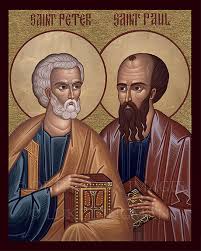
But these splendours were not free of troubles. Peter, the first Pope, endured persecution for the sake of the Church. Similarly, St Paul had his share of struggle and pain. But both persevered to the end. Hence, St Paul’s exhorted his people to preach the Word of God in and out of season, foreseeing that ‘the time is coming when people will not endure sound teaching, but having itching ears they will accumulate for themselves teachers to suit their likings, and will turn away from listening to the truth and wander into myths’ (2 Tim 4: 3-4).
How true, especially in our days, when ‘sound teaching’ is sometimes scorned for its directness. So, we go about our petty lives feeling just listless and complacent, if not revolted. But then, to keep up with the Joneses, we might find ourselves a cosy nook and turn to teachers who will whisper sweet nothings and never ruffle feathers. And as if these false teachers weren’t bad enough, we might even ‘wander into myths.’ These are now part of New Age movements that the Church cautions us against.
The Apostle to the Gentiles in the Second Reading (2 Tim 4: 6-8, 17-18), after speaking of his impending martyrdom, famously says: ‘I have fought the good fight, I have finished the race, I have kept the faith.’ He can legitimately hope that the Lord will award the crown of righteousness to him and to all who have waited for His appearing.
All of which brings into sharp focus a psalm for deliverance from trouble (34:2-9), which the afflicted will hear and be glad. It invites us to trust in the Lord at all times, to look to Him and be radiant, to taste and see that He is good! It comforts the afflicted to know that ‘the angel of the Lord encamps around those who fear Him, and delivers them.’ Hence, happy is the man who takes refuge in the Lord. Like St Peter and St Paul, we too must strive to be models of such faith and courage.
Banner: The Virgin and Child with Saints Peter and Paul, by Girolamo Figino
[1] Acts 3:1-10 (Peter and John healing a crippled beggar); Psalm 19:2-3, 4-5 (Their message goes out through all the earth); Galatians 1:11-20 (Paul's conversion and preaching); John 21:17 (Jesus asks Peter if he loves him); John 21:15-19 (Jesus reinstates Peter).
[2] Cf. l’Abbé C. Fouard, Jesus Christ the Son of God (Goa: Don Bosco, 1960), p. 258.
Beauty of being Church
The Readings of the Third Sunday of the Year provide important insights into two momentous beginnings: one, the great religious reform introduced by Nehemiah, with the help of Ezra and the Levites, in the First Reading (Neh. 8: 2-6, 8-10); and the other is Jesus’ teaching ministry, which gave birth to Christianity, in the Gospel (Lk 1: 1-4; 4: 14-21).
Nehemiah was a Jewish leader, and later governor, who supervised the rebuilding of Jerusalem (mid-5th century BCE) after the release of the Jews from their exile in Babylon. The Book of Nehemiah, partly based upon his memoirs, was later put together by an anonymous writer, who apparently also compiled the books of Ezra and the Chronicles.
Nehemiah introduced moral and liturgical reforms in rededicating the Jews to Yahweh. In today’s passage, we see the zealous public imparting of the knowledge of God to people of goodwill. The assembly thus gathered served as a model for the religious life of the Jewish community.
About the Sabbath, governor Nehemiah, the priest and scribe Ezra, and the Levites[1], taught the people: ‘This day is holy to the Lord your God; do not mourn or weep.’ The people wept tears of repentance for their earlier misdeeds. While they were then encouraged to rejoice in the Lord and be happy, it was not solely about partying (‘eat the fat and drink sweet wine’) but about partaking of the neighbours’ misfortunes as well (‘send portions to him for whom nothing is prepared’).
In a close parallel, Jesus preaches in the synagogue of Nazareth. After His Baptism, He had ‘returned in the power of the Spirit into Galilee, and a report concerning Him went out through all the surrounding country.’ When He was given the Book of Isaiah to read aloud from, behold the passage He found when He opened the Book:
‘The Spirit of the Lord is upon me, because He has anointed me to preach good news to the poor. He has sent Me to proclaim release to the captives and recovering of sight to the blind, to set at liberty those who are oppressed, to proclaim the acceptable year of the Lord.’
If this Old Testament passage, like many others, is not an allusion to Jesus, what is? When Jesus closed that book, the eyes of all in the synagogue were fixed on Him. And Jesus went ahead and proclaimed, ‘Today this scripture has been fulfilled in your hearing.’ All spoke well of Him, and wondered at the gracious words which proceeded out His mouth.
Finally, in continuation of last Sunday’s Pauline passage on the spiritual gifts, the said Apostle speaks of the Church as one body with many members (1 Cor: 12: 12-30). He compares the Church to our physical body, which has many members, and yet all of them make up one body. In fact, the metaphor of the body, to mean the unity of an organised society with diverse members, was commonly used by Greeks and Romans. St Paul says that, likewise, Christians by faith and baptism become members of the Mystical Body of Christ.
The good news is that all have a place in the Church – whether young or old, rich or poor, educated or uneducated; and all of them are respectable – whether apostles, prophets, teachers, miracle workers, speaking in tongues, or whoever. The only condition is that we have to believe in Christ, receive the sacraments He instituted and remain in obedience to the authority He established.
Bonding is effected through both suffering and rejoicing. ‘If one member suffers, all suffer together; if one member is honoured, all rejoice together.’ Unity in diversity is the beauty of being Church; but the highest beatitude is that the People of God attain to salvation (CCC 874) Something that has come down to us from Nehemiah and was perfected by our Saviour Jesus Christ. We are called to be people of God and heralds of His glad tidings.
This year we are in the Jubilee Year (which Nehemiah had reinstated).[2] In the Catholic Church it is a Year of forgiveness, reconciliation, and renewal of faith. Let us move forward as 'Pilgrims of Hope'.
[1] Member of a group of clans of religious functionaries, their lineage is traced back to Levi, the third son of Jacob and Leah.
[2] The 2025 Jubilee Year began on 24 December 2024 and will end on 6 January 2026. The theme for 2025 is ‘Pilgrims of Hope’.
Salvos and Salvation
Even a glimmer of hope that the Gaza ceasefire will go into effect today seems to have instantly put the world at ease. But will the behind-the-scenes arm-twisting by the US President-elect really spell the end of the salvos? And whether or not the parties concerned will honour the deal, or how long they will do so, is just anybody’s guess.
Israel has always been a hard nut to crack. Ironically, the nation that comprised God’s Chosen People has long since been at loggerheads with Him. It is said that in the past God spoke to them through the prophets, but to no avail. Finally, two millennia ago He spoke to them by his Son, again in vain. The saving grace is that after this time the divine message was proclaimed to the world at large.
The First Reading (Is 62: 1-5) on this Second Sunday in Ordinary Time is witness to how God’s People, long exiled and suffering in Babylon, were not forsaken by Him. In fact, the Prophet Isaiah joyfully announces their impending salvation. God will not rest until ‘her vindication shines out like the dawn, her salvation like a blazing torch.’
The most shining image through it all is that of marriage. ‘As a young man marries a young woman, so will your builder marry you; as a bridegroom rejoices over his bride, so will your God rejoice over you.’ And to better define the love by which God wishes to restore His ties with his People, Isaiah picks up this key Scriptural theme of the marriage of God and Jerusalem.
Is it any wonder, then, that the first miracle that Jesus performed was at a marriage in Cana? While the Gospel (Jn 2: 1-11) describing this ‘sign’ (miracle) harks back to Isaiah, it also establishes Jesus as the Son of God and helps take forward His salvific plan. And Mary’s discreet participation is not to be missed. She not only suggested to her Son that His intervention was the need of the hour; she went ahead and created the right conditions by instructing the servants to do whatever He told them.
Here were two persons who cared and went out of their way to prove they cared. In human terms, this reaching out by Mother and Son was a sure way to win the people’s confidence and trust. But this was only the beginning, not an end in itself. The larger concern was the spiritual salvation of those people. The changing of the water into wine should have led the people to lose themselves in the Wonder Worker. But here again, Israel proved to be a hard nut to crack.
What about you and me? Do we firmly believe that Jesus is our personal and universal Saviour? That His Mother is Mediatrix and Co-Redemptrix? By becoming the ‘handmaid of the Lord’, she made possible the birth of the Son of God. And today we see her as catalyst in Her Son’s public life. At first, He seems to reject her suggestion but soon we see Him doing precisely what she had suggested. This not only goes to show how much Jesus valued His Mother but also how we must hold her in high esteem.
Finally, while Christ is the Bridegroom, none other than the Church is the Bride of Christ. And behold how the believers that comprise the Church are wedded together. The Second Reading (1 Cor: 12: 4-11) states that there is a diversity of ministries and operations but the same Lord and God.
Similarly, the Holy Spirit manifests Himself in us the believers through charisms: He gives to one the word of wisdom, to another, the word of knowledge, and similarly, faith, grace of healing, the working of miracles, prophecy, the discernment of spirits, the gift of tongues, interpretation of speeches, and so on, but all as per of that same Spirit.[1] Yet, these gifts are not meant for self-aggrandisement but to bring about our ultimate salvation.
A close-knit family of believers ought to be the apple of our eye. Family cohesion comes as fruit of a blessed marriage. God and His people together none can put asunder. And no matter how soon we see the end of the salvos, real salvation comes from God alone. He is our Spes Unica, our only hope!
[1] Operations, services and charisms refer to the same experience but are named differently as to be attributed to the Three Persons of the Holy Trinity.
Christ’s unmistakable divinity
All three Readings of Sunday after Epiphany underline the divinity and mission of the One born in Bethlehem. After all, that is what Epiphany was meant to be: a manifestation of Christ to the Gentiles as represented by the Magi. It was also the manifestation of divinity at His Baptism in the River Jordan, and finally at His first miracle, at Cana in Galilee.
January 6 (and now the Sunday close to it) is commemorated as the day the Magi visited the Infant Jesus. And today we commemorate His Baptism at the hands of His forerunner cousin, John, as recounted in the Gospel (Mt 3: 13-17). But what is the rationale behind a prophet baptising the Son of God, the Messiah?
Truly, John was hesitant but Jesus said, ‘Let it be so now; for thus it is fitting for us to fulfil all righteousness.’ ‘Righteousness’ or ‘justice’ is the new fidelity, a total obedience to the will of God. For His part, Jesus wished to express His solidarity with sinners, through baptism. He showed how His mission was a far cry from the Judaic dream of a proud and triumphant Messiah.
Realising what Jesus meant, John the Baptist consented to baptise Jesus. As a fitting endorsement of this act, the heavens open and the Spirit of God descend upon Jesus like a dove. And, lo and behold, a voice from heaven says, ‘This is My beloved Son, with whom I am well pleased.’ The bystanders must have been in awe and got goosebumps. What better confirmation could the Jews, then, expect before they accepted Jesus as the Messiah?
The First Reading (Is 42: 1-4, 6-7) prefigures the Gospel passage of today. We hear similar words from what is called the First Song of the Servant, making the hair stand on end. The Book of Isaiah has four oracles or poems on the Servant of Jehovah. It is not easy to identify this figure: was he the prophet himself? Or the historical Israel? Or the ideal Israel? Well, the New Testament identifies the Servant with Jesus Christ, linking especially the last oracle with His Passion.
Meanwhile, here are those words echoed at the Baptism of Jesus: ‘Behold my servant whom I uphold, my chosen, in whom my soul delights; I have put my Spirit upon him, he will bring forth justice to the nations.’
What follows is a picture of Our Lord meek and humble of heart, He who died for our sins. Finally, words expressing His mission on earth: ‘I have given you as a covenant to the people, a light to the nations, to open the eyes that are blind, to bring out the prisoners from the dungeon, from the prison those who sit in darkness.’
Indeed, Jesus was the mediator of the New Covenant; He was a light by the love, compassion and hope He offered to the nations; He cured the blind, the deaf, the mute and the lame, and brought many people back to life; finally, in our times, He has liberated you and me from physical, emotional, psychological and spiritual captivity.
Finally, in the Second Reading (Acts 10: 34-38), St Peter[1] is at the house of Cornelius the Roman centurion (considered the first gentile to convert to the Christian faith) when he vouches for his Divine Master. Peter states that after Baptism, the name of Jesus was made known throughout Judea, beginning from Galilee. Now anointed with the Holy Spirit and with power, Jesus went about doing good and healing those oppressed by the devil.
Since Jesus is the Light of the World and meant to be proclaimed to the ends of the earth, St Peter makes it clear right away that God is supranational. He does not care for earthly divisions of nations, societies, or any other. Any person is pleasing to Him and the Heavenly Father, not by their purity or impurity but by their fear of God and His justice.
By baptism, our sins are forgiven and our souls are infused with the life of God. We become children of that One True God. Like the first group of pagans who at Cornelius’ house were awed by the Good News of Salvation and broke their ties with their Jewish past by receiving baptism, may we too appreciate the fruits of the Holy Spirit and use our gifts to spread the Good News.
Banner: https://shorturl.at/3TKk0
[1] In St Luke’s Acts of the Apostles, St Peter is the primary protagonist through chapters 3-12 and the Apostle Paul through chapters 9-28.
Privileged to be part of God’s Family
Today, Sunday in the Octave of Christmas, marks the Feast of the Holy Family. In India, the Lectionary offers Readings for the Years A, B and C, as follows:
| Year | First Reading | Psalm | Second Reading | Gospel |
| A | Eccl 3: 2-6, 12-14 | Ps 127: 1-2, 3, 4-5 | Col 3: 12-21 | Mt 2: 13-15, 19-23 |
| B | Gen 15: 1-5, 21: 1-3 | Ps 104: 1-6, 8-9 | Heb 11: 8, 11-12, 17-19 | Lk 2: 22-40 |
| C | 1 Sam 1: 20-22, 24-28 | Ps 83: 2-3, 5-6, 9-10 | 1 Jn 3: 1-2, 21-24 | Lk 2: 41-52 |
However, in Years B and C, there is an option to use the Readings of Year A instead.
For reflections on the Readings of Year A, see https://www.oscardenoronha.com/2023/12/31/gazing-admiringly-at-nazareth/; and for Year B, see https://www.oscardenoronha.com/2023/01/01/under-two-holy-names/
-o-o-o-
Proceeding to the Readings assigned for Year C, we must note their aptness and correlation.
In the First Reading (1 Sam 1: 20-22, 24-28), Hannah[1] is one of two wives of Elkanah. Hannah was childless, whereas his second wife Peninnah bore him children; yet he had a soft spot for Hannah. Her status as first wife and her barrenness are reminiscent of Sarah (Gen 17) and Rebecca (Gen 25).
One day Hannah went up to the Tabernacle[2] and wept as she prayed. She asked God for a son and vowed to give him back for the service of God. She knew that being childless implied that one did not enjoy God’s favour; and bearing a male child would set her up in the community.
Finally, Hannah conceived and bore a son, whom she named Samuel (meaning, ‘Heard by God’). She raised him until he was weaned and brought him to the temple along with a sacrifice. There she made him over to the Lord for the whole of his life – something that will prompt moderns to question her wisdom. The fact is that, as a prophetess in her own right, she had discerned God’s will. Samuel was happy and fulfilled where he was planted – ‘How lovely is your dwelling place, Lord, God of hosts,’ says the Psalm today, doesn’t it? He became a priest and a man of great faith, Israel's last judge and first of the later prophets.
Hannah has a prayer of thanksgiving to God for the birth of Samuel; it’s called the Song of Hannah. It found an echo in the Magnificat that the Blessed Virgin Mary sang upon visiting her cousin Elizabeth. Hannah, Mary, and Elizabeth became pregnant in miraculous ways and dedicated their sons (Samuel, Jesus, and John the Baptist) to God’s service. And for those who may wonder how Hannah could be so self-sacrificing, the fact is God pays us back a thousandfold. Accordingly, Eli announced another blessing on Hannah, and she conceived three more sons and two daughters.
On this Feast of the Holy Family, the Gospel too could perplex the modern mind. When the parents of Jesus were returning from Jerusalem after the feast of the Passover, Jesus stayed behind in the temple. His parents did not know it; they then searched for Him in the city and found Him after three days. On hearing of how anxious they had been, Jesus retorted: ‘Did you not know that I must be in my Father’s house?’ Yes, seated among the teachers, He had amazed them with his knowledge and insightful answers.
Parents today suffer from greater anxiety than Jesus' parents did. Yet, their anxiety is only about how their children will fare in this world, not in the next. In stark contrast, even while Jesus displayed independence of mind, the parents of Jesus were satisfied with their Son’s answer – because His concern was with being in His Father’s house, where He truly belonged. It was not stubbornness. He had made His point, and was now obedient and submissive to His earthly parents. What a fine balance! Then, there comes, what is to me, one of the most beautiful passages in the Scriptures: ‘Jesus increased in wisdom and in stature, and in favour with God and men’, while His mother ‘kept all these things in her heart.’
Between the First and the Third Readings, we clearly have a preannouncement and its fulfilment, a forerunner and the actual Messiah. And what place do you and I have in the divine economy? In the Second Reading (1 Jn 3: 1-2, 21-24), St John[3] states, ‘We are called God’s children, and that is what we are.’ Indeed, by our baptism we have become God’s children, unlike others who, though also loved by God, are His creatures.
Noblesse oblige: privilege entails responsibility. Hence, our life as children of God ought to be radically different from that of unbelievers. We must live in a way that pleases our Father in Heaven; we must live a life of selfless love. If we ‘think of the love that the Father has lavished on us, by letting us be called God’s children’, we will never be discouraged when the world rejects us. The world rejects us as once they rejected Jesus. What a privilege to be in His company!
At the same time, we are not to rest on our laurels; ‘what we are to be in the future has not yet been revealed; all we know is that when it is revealed we shall be like Him because we shall see Him as He really is.’ So, we must pray for blessings and graces and earn our place in Heaven. And to ensure that this happens, we must keep the Father’s Commandments and live the kind of life that He wants us to live. His commandments are simple: that we believe in the name of His Son, Jesus Christ, and that we love one another as He has loved us. This will set an example to our immediate human families. Fortunately, we have the Holy Family of Nazareth for our model of family life, human relations and community life – all of which lets us partake of God’s family.
[1] She finds mention only in the first two chapters of the first Book of Samuel.
[2] In Jewish history, the Tabernacle (meaning, ‘dwelling’) refers to the portable sanctuary constructed by Moses as a place of worship for the Hebrew tribes during the period of wandering that preceded their arrival in the Promised Land. The Tabernacle became redundant after the construction of Solomon's Temple in Jerusalem in 950 BC.
[3] St John is the author of the Gospel of John and four other books of the New Testament – the three Epistles of John and the Book of Revelation.
The Light of Love
Three short Readings fills us with eager anticipation for Christmas.
On this Fourth Sunday of Advent, Micah’s words create the atmosphere. Micah (aka Micheas) is one of the Twelve Minor Prophets, a contemporary of Isaiah, Amos and Hosea. He castigated Jerusalem for her sin of idolatry would lead to her fall. He also prophesied her recovery and the restoration of the Judean state.
The First Reading of today (Mic 5:2) is a key passage in that regard. Micah honours Bethlehem, a small village south of Jerusalem, as the future birthplace of the Messiah: ‘You, O Bethlehem Ephrathah,[1] who are little to be among the clans of Judah, from you shall come forth for me one who is to be ruler in Israel, whose origin is from of old.’ This provides the convincing proof that Jesus is God!
The Gospel text (Lk 1: 39-45) endorses the fact that Jesus is God. ‘When Elizabeth heard the greeting of Mary, the babe leaped in her womb; and Elizabeth was filled with the Holy Spirit and she exclaimed with a loud cry, Blessed are you among women, and blessed in the fruit of your womb!’ Further, Elizabeth refers to her cousin as ‘the mother of my Lord’, who was ‘blessed’ for believing that there would a fulfilment of what was spoken to her by the Lord.
And what manner of man would the babe of Bethlehem grow up to be? The Second Reading (Heb. 10: 5-10) defines him: he would despise sacrifices and offerings and offer Himself as a holy sacrifice once for all. Seldom do we realise that the gentle spirit of the Nativity prepares the way for the drama of the Cross and the Paschal victory.
That Supreme Sacrifice speaks volumes of God’s love for humankind. We are called to live in the light of that ineffable love.
[1] Ephrathah, to distinguish this town from another called Bethlehem.
The Light of Joy
Today is the Third Sunday of Advent. We have got this far with hope and peace we have summoned from past two Sundays. We are half way to the holy day commemorating the arrival of our Saviour in Bethlehem two centuries ago. There is an air of anticipation, and the Readings reflect that joy. It stems from the conviction that, no matter how we may fall short of the glory of God, He does not abandon us. In fact, He has stayed with us through human history and our personal stories.
In the First Reading (Zeph 3: 14-18), we meet a rare prophet. Zephaniah prophesied in the days of king Josiah of Judah (640–609 BCE). He was a contemporary of Jeremiah and had much in common with him. The scene of his activity was the city of Jerusalem. A three-chapter book that he wrote places him among the twelve minor prophets.
Today’s text is from Zephaniah’s third and last chapter. It has a Messianic flavour, although not to the same extent as Isaiah and Jeremiah do. It’s a hymn of hope about the restoration of Israel. ‘Daughter of Zion’ and ‘daughter of Jerusalem’ personify the inhabitants. Zion was the local hill, on which David built his city. Zion was also a land of future promise or return from exile. And although infrequent in the New Testament, Zion has been used as a name for the heavenly city or for the earthly Christian city.
As foretold in the Old Testament, the Lord kept His promise. He sent His Only Son with the Good News of Salvation; the bad news was that the people of Israel misunderstood His mission and rejected Him. God, however, remains faithful to the end. He comes into our homes and hearts very especially, and will come again at the end of times – hour unknown.
As for St Paul, in the Second Reading (Phil 4: 4-7), he says ‘the Lord is at hand.’ What does that mean? It was common for the first generation of Christians to believe that the Lord’s return was imminent. So, in his letter to the Philippians, the Apostle instructs and reassures them. By no means does he give them false hope; for ‘at hand’ meant nearby, close to us, in spirit.
St John the Baptist and Jesus Himself often used that expression. In fact, Jesus is always at hand: does He not follow every step we take and prevent us from stumbling? Can we imagine even a moment without the Lord’s presence and intervention? God is one with our earthly reality. We must, therefore, in prayer with petition and thanksgiving, let Him know our concerns.
In the Gospel (Lk 3: 10-18), we learn that the multitude asked St John the Baptist: ‘What then shall we do?’ This question that occurs quite naturally is the beginning of a change of heart, a conversion. The Baptist not only tells them what they have to do, he points to Jesus as being the One they have to follow: ‘I indeed baptize you with water; but there shall come one mightier that I, the latchet of whose shoes I am not worthy to loosen: he shall baptize you with the Holy Ghost, and with fire.’
The son of Zechariah and Elizabeth then added that when Christ comes in judgement, He will ‘gather the wheat into his barn; but the chaff he will burn with unquenchable fire.’ Of course, this is not a matter for sadness but joy – for we have finally found The Way! Jesus endorsed the idea, saying, ‘I am the Way, and the Truth, and the Life. No man cometh to the Father, but by me.’
On Gaudete Sunday[1] today, we ought to rejoice, for the Saviour is in our midst, notwithstanding our sins of old. The pink or rose of the third candle of Advent, called the Shepherd’s Candle, represents that joy. Jesus is indeed the Good Shepherd. We have to rejoice with deep faith in His goodness and mercy. With this knowledge or light in our hearts, we are sure to experience the light of joy! And the more we partake of that joy, the greater will be our light, our knowledge, our understanding of things divine!
[1] So called from the Latin opening words of the introit antiphon, ‘Gaudete in Domino Semper’ – Rejoice in the Lord always!
The Light of Peace
Our Advent journey is so rich in meaning that themes keep adding through the Readings.
Today’s First Reading is taken from the Book of Baruch (5: 1-9), an anonymous author who had possibly assumed the name of Prophet Jeremiah’s scribe Baruch ben Neriah. The text announces the final restoration of Israel, her liberation and return from exile. There is a reference to the change of the name Jerusalem, in line with what the Prophet Isaiah had announced: ‘Peace of justice, and honour of piety’.
The city’s new appellation represents the joy experienced by returnees from the Exile, now assembled there to begin a new journey. Similarly, we who are exiles in this world see a new promise, a new light, a new hope. Jesus is to come again this Christmas and at the end of time, bringing peace, justice, honour and piety. And we will begin a new journey towards Heaven, the Eternal Jerusalem, where we belong.
The Gospel (Lk 3: 1-6) suggests that we too should assemble this Advent and embark on a new journey. It is metanoia, our journey of conversion and transformation. This cannot be said better than in the memorable words of Isaiah, with reference to the future St John the Baptist: ‘The voice of one crying in the wilderness: Prepare the way of the Lord, make his paths straight.’
We are never alone on our journey. Our Lord walks alongside, and whenever necessary carries us on His shoulders. That is how He makes our burdens light. He fills every valley, flattens hill and mountain, makes the paths straight and smooth, to ensure that we see the salvation of God – reach Heaven. This is our journey’s ultimate and noblest goal.
Let’s think of how our journey toward Christmas has been like thus far. Have we examined our conscience, confessed our sins (at the very beginning, not end, of Advent), prayed and asked for pardon? Advent is not a time of merriment in anticipation of Christmas. In fact, it is a penitential season, a ‘little Lent’.
‘Advent used to be forty days but was formalized to four weeks, in the ninth century, which is why we now have the four Sundays of Advent. The Mass itself assumes a more sombre tone during Advent. The priests wear violet vestments, as they do during Lent, since purple is the liturgical colour that signifies an attitude of repentance and sorrow for sin. The Gloria is also removed from the beginning of Mass during Advent, just as it is during Lent.’[1]
Though both Advent and Lent are times of preparation for Christmas and Easter, respectively, the essential difference is that Advent has no Passion Week. The penitential observances of Advent always have a festive character to them, which is why the Alleluia is retained. It is sad that we are tempted to pass over the penitential aspects of Advent and focus on the festivity of Christmas.
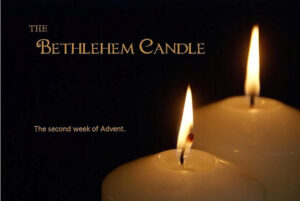
Vis-à-vis our secular culture, therefore, St Bernard of Clairvaux (1090-1153) drives home a point. The mystic co-founder of the Knights Templar says: ‘Consider Who He is that comes, whence He comes, to whom He comes, for what end He comes, when He comes, and in what manner He comes. This is undoubtedly a most useful and praiseworthy curiosity, for the Church would not so devoutly celebrate the season of Advent if there were not some great Mystery hidden therein.’[2]
In light of the above, it is significant that St Paul bore the same joyful sentiments with which Baruc celebrated the return of the exiles to Jerusalem. He sings a paean to the conversion of the Philippians. Not one to bask in past glories, the Apostle to the Gentiles urges them thus: ‘This I pray, that your charity may more and more abound in knowledge, and in all understanding: That you may approve the better things, that you may be sincere and without offence unto the day of Christ, filled with the fruit of justice, through Jesus Christ, unto the glory and praise of God.’
There is no joy without prior conversion. May the second Advent candle, called Bethlehem Candle that represents Peace, remind us of Mary and Joseph’s journey from Nazareth to Bethlehem before the Nativity. She was carrying the Prince of Peace. Let us, who are filled with a renewed, transcendental hope this Advent, embark on a spiritual journey that will better prepare us to receive the Light of the World who is Peace Incarnate.
Banner: https://shorturl.at/QtaWi
[2] ‘On the Advent of Our Lord and its Six Circumstances’, in Sermons of St Bernard on Advent and Christmas, p. 4. https://shorturl.at/limFm
The Light of Hope
Don’t the words ‘Behold the days come, saith the Lord…’ light up our faces and warm our hearts? Then we know it is the season of Advent!
What joy to be once again in Advent! It is the most beautiful time of the year. And what joy to be greeted with those words. The cause of that joy stems from Our Lord’s promise to transform our lives, making them holy and fit for Heaven.
In the First Reading (Jer 33: 14-16), the Lord promises to ‘make the bud of justice to spring forth unto David.’ Judah was in need of someone who would rule with ‘judgement and justice’, ensuring that the city lived securely and the country was saved.
The House of David ruled for generations. No doubt it had its share of ups and downs, but it all paved the way for the coming of the Messiah. In His infinite goodness, God sent us His Only Son. The promise made to David was realized in Jesus, but alas, He was rejected by His own. Jesus is now coming yet again. How prepared are we to welcome Him?
The best part of our preparation is to confirm our hearts ‘without blame, in holiness, before God and our Father, at the coming of our Lord Jesus Christ, with all his saints,’ as St Paul says in the Second Reading (Thes 3: 12 – 4: 2). The Messiah desires no silver or gold, no frills, and for sure no lip-service. He wants us to grow in the life of the spirit, or say, the theological virtues of hope, faith and charity. This for sincerity and constancy.
St Luke too, in the Gospel (Lk 21: 25-28, 34-36), recommends watchfulness. ‘There shall be signs in the sun, and in the moon, and in the stars; and upon the earth distress of nations, by reason of the confusion of the roaring of the sea and of the waves… When these things begin to come to pass, look up, and lift up your heads, because your redemption is at hand,’ says the Evangelist, quoting Jesus. But are we going to interpret them, understand them, accept them as God wants us to? Or are we going to superimpose them with our own ‘scientific’ ideas?
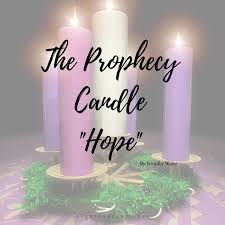
The Evangelist warns against ‘surfeiting and drunkenness, and the cares of this life.’ Woe to them who are caught in such a state, for the day will come upon us ‘as a snare’. Of course, alone we can do nothing, so we must prayerfully rely on God, asking that we may be ‘accounted worthy to escape all these things that are to come, and to stand before the Son of man.’
On this first Sunday of Advent, let us remember that That is where He would like to be born and have us proclaim Him. He brings us hope. This is symbolized by the Prophecy Candle, which takes us back to the Old Testament, especially Isaiah’s prophecies filled with hope of the coming of Jesus. The candle is purple, the primary colour of Advent, symbolizing royalty.
So will it be this year and at the end of times! After all, every Advent is only a foreshadowing of the time when the Son of Man will come in glory. Let us realize this truth, lest our wait go in vain. Hence, let us do all it takes to make Advent meaningful by illuminating our lives with the light of hope and spreading the joy of Jesus.
Banner: https://shorturl.at/yYtba
